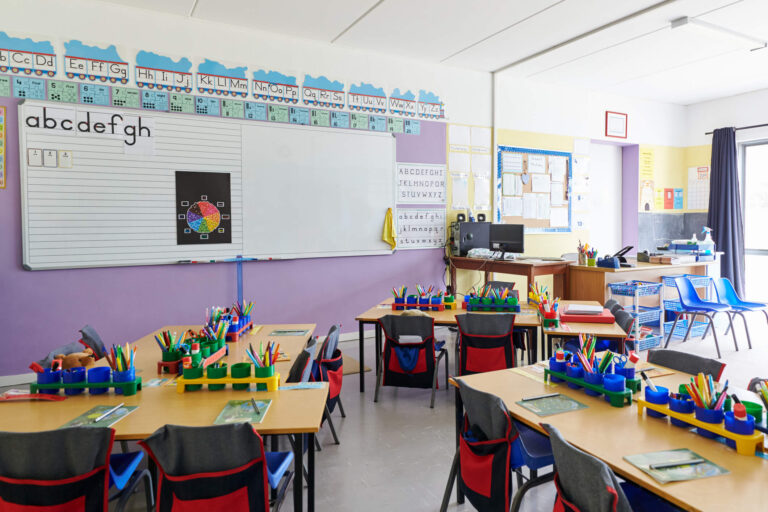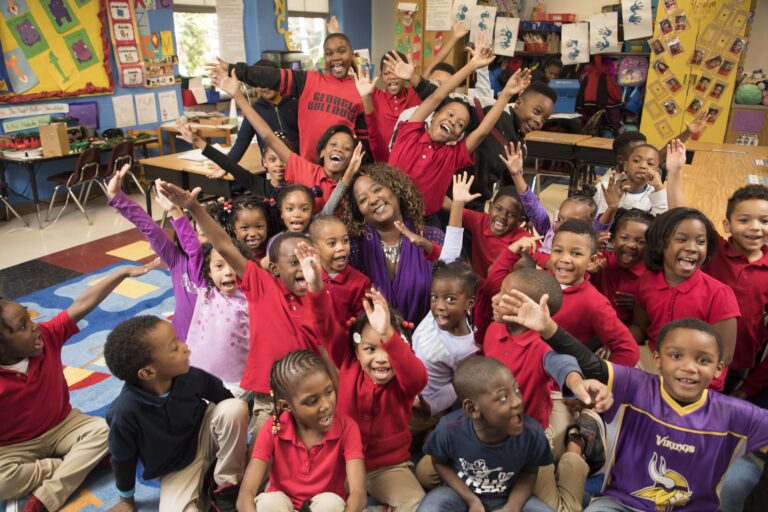Raise your hand if you learned a foreign language in school! Do you remember the unique name you chose to be called during your class? I do! You can call me Genevieve, today, instead of Taylor! I started learning French in the fifth grade, and I was lucky enough to have the opportunity to study the language for the following seven years in school. Although I did not continue practicing and speaking French as an adult, I always knew there was incredible value in understanding multiple languages.
We are all aware of the great benefits of bilingualism, but do we always take this understanding into our classroom while engaging with our dual language learners (DLLs)? Or do we sometimes want our children to learn, talk, and think like their English speaking peers? Bilingualism is a useful and valuable asset for a child, their family, their classroom, and our society.
Let’s look at some benefits of bilingualism and learn more about our incredible dual language learners!
Cognitive Benefits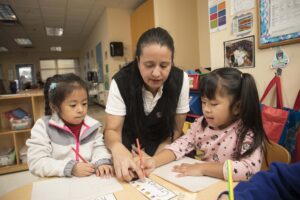
People that speak two languages are constantly switching between two language systems. It is called “code switching!” This helps keep their brains active. Research shows that bilingualism helps children with:
- understanding math concepts and solving word problems (Zelasko and Antunez, 2000)
- using logic (Bialystok and Majumder, as cited in Castro, Ayankoya & Kasprak, 2011)
- focusing, remembering, and making decisions (Bialystok, 2001)
- thinking about language (Castro et al., 2011)
- learning other languages (Jessner, 2008).
Socioemotional Benefits
Bilingual children are not just learning two languages, they are also learning two different cultures. Children who are able to keep their home language are able to maintain stronger ties to their families and community. Children can effectively learn to navigate between the different cultures at school and at 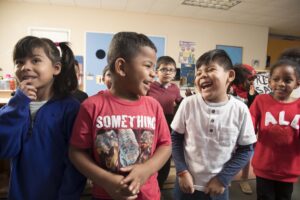 home.
home.
- Bilingual children maintain their expressive ability in their home language, which is critical to their bond with family (Wong Fillmore, 1991).
- Ties with family and culture are important in the development of children’s identities (Zelasko and Antunez, 2000).
- Children raised in bilingual households appear to have better self-control (Kovacs and Mehler, 2009) and are easily able to get along with others – both very important indicators of success in school.
Learning and School Readiness
Mastery of the home language can be beneficial for dual language learners’ school readiness. Bilingual children benefit greatly from having rich, meaningful conversations with their families in their home language.
- The ability to think and read in two different languages promotes higher levels of abstract thinking,
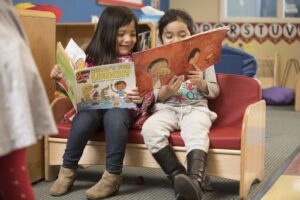 which is very important for learning (Diaz, 1985).
which is very important for learning (Diaz, 1985). - Bilinguals are better able to ignore irrelevant information, a benefit that may exist as early as 7 months of age (Kovacs and Mehler, 2009).
- Children who learn to read in their home language have a strong foundation to build upon when they learn a second language. The knowledge acquired in one language transfers to their second language (Páez and Rinaldi, 2006).
Recommended Resources found in the Cox Campus Resource Library:

